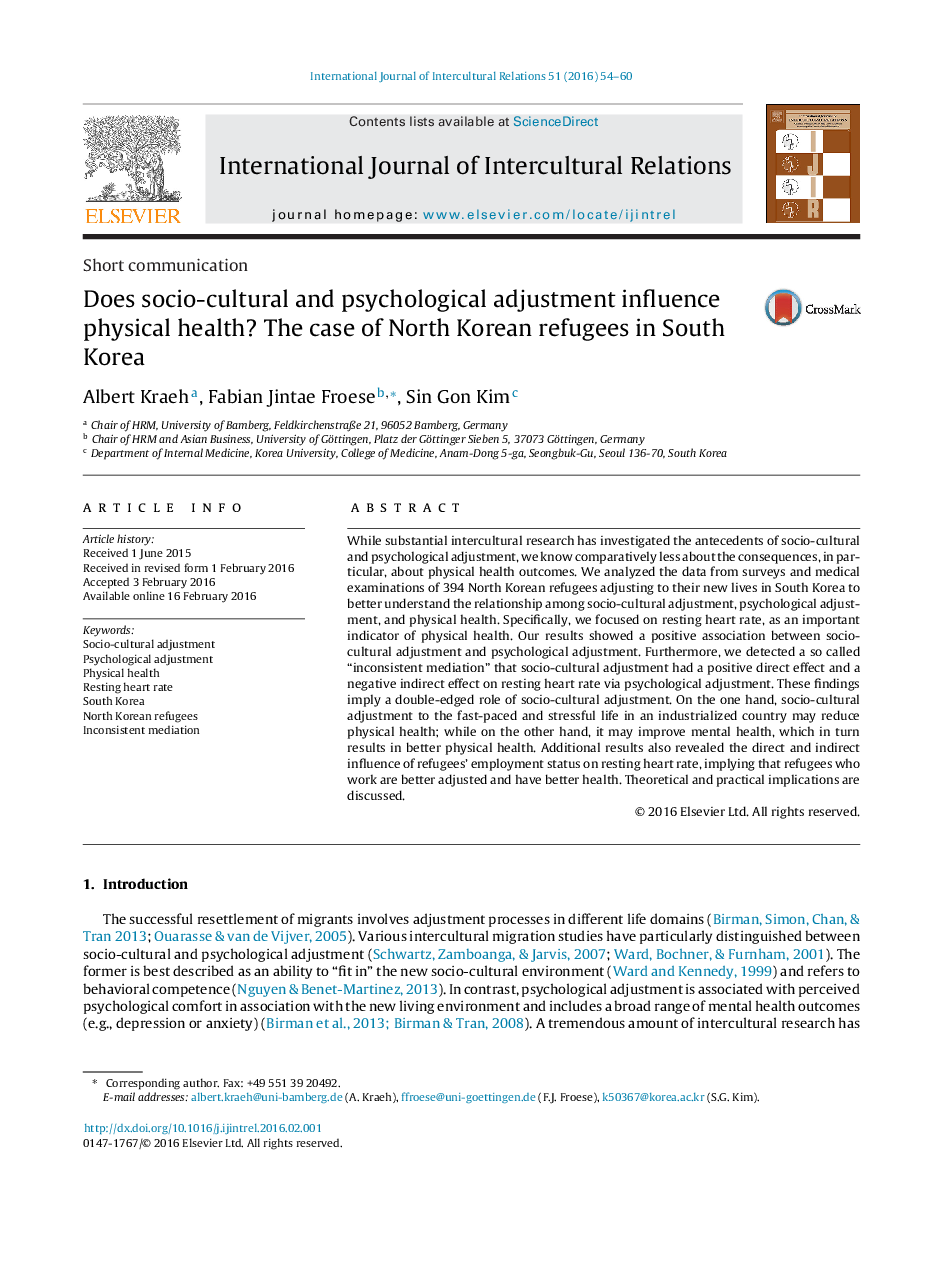| Article ID | Journal | Published Year | Pages | File Type |
|---|---|---|---|---|
| 7323728 | International Journal of Intercultural Relations | 2016 | 7 Pages |
Abstract
While substantial intercultural research has investigated the antecedents of socio-cultural and psychological adjustment, we know comparatively less about the consequences, in particular, about physical health outcomes. We analyzed the data from surveys and medical examinations of 394 North Korean refugees adjusting to their new lives in South Korea to better understand the relationship among socio-cultural adjustment, psychological adjustment, and physical health. Specifically, we focused on resting heart rate, as an important indicator of physical health. Our results showed a positive association between socio-cultural adjustment and psychological adjustment. Furthermore, we detected a so called “inconsistent mediation” that socio-cultural adjustment had a positive direct effect and a negative indirect effect on resting heart rate via psychological adjustment. These findings imply a double-edged role of socio-cultural adjustment. On the one hand, socio-cultural adjustment to the fast-paced and stressful life in an industrialized country may reduce physical health; while on the other hand, it may improve mental health, which in turn results in better physical health. Additional results also revealed the direct and indirect influence of refugees' employment status on resting heart rate, implying that refugees who work are better adjusted and have better health. Theoretical and practical implications are discussed.
Related Topics
Social Sciences and Humanities
Business, Management and Accounting
Business and International Management
Authors
Albert Kraeh, Fabian Jintae Froese, Sin Gon Kim,
